Space
Sign up for our newsletter
We summarize the week's scientific breakthroughs every Thursday.
-
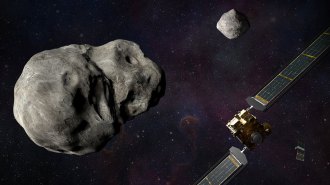 Planetary Science
Planetary ScienceAn asteroid’s moon got a name so NASA can bump it off its course
A tiny moon orbiting an asteroid finally got a name because NASA plans to crash a spacecraft into it.
-
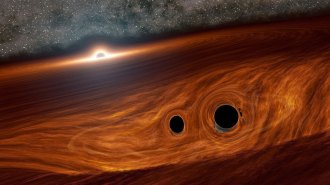 Space
SpaceColliding black holes may have created a surprising flare of light
A flare-up after a gravitational wave outburst may be the first sighting of light from colliding black holes.
-
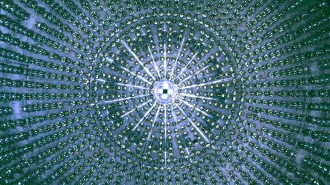 Particle Physics
Particle PhysicsPhysicists spot a new class of neutrinos from the sun
Researchers with the Borexino experiment in Italy have detected neutrinos produced in the secondary fusion process taking place in the sun’s core.
-
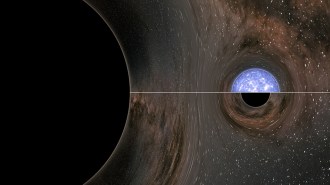 Space
SpaceLIGO and Virgo detected a collision between a black hole and a mystery object
The first evidence of an object more massive than any neutron star and more lightweight than any black hole has astronomers wondering what it is.
-
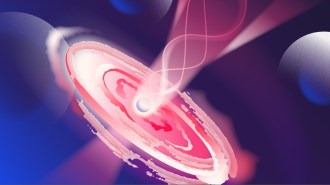 Space
SpaceBlack hole plasma jets are shaped like bell-bottoms
Jets of high-energy particles change from slightly curved sides to flared cones as they shoot away from galaxies, just like flare-legged pants.
-
 Particle Physics
Particle PhysicsMeasuring the neutron’s lifetime from space could solve an enduring mystery
Measurements on Earth show that lone neutrons decay after about 15 minutes, and now scientists have measured that lifetime from space.
-
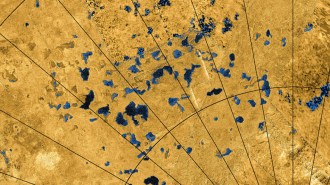 Space
SpaceFlat spots on Saturn’s moon Titan may be the floors of ancient lake beds
Bright radio signals from Titan indicate the presence of ancient lake beds in its tropics, a new analysis finds.
-
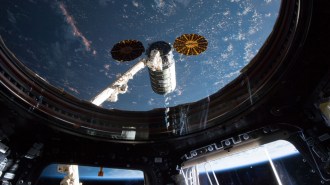 Quantum Physics
Quantum PhysicsThis weird quantum state of matter was made in orbit for the first time
Bose-Einstein condensates made on the International Space Station could reach temperatures lower than any known in the universe.
-
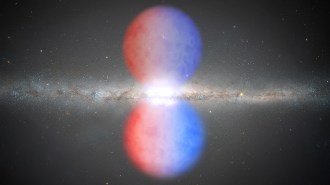 Space
SpaceThe Milky Way’s giant gas bubbles were seen in visible light for the first time
Variation in the light’s wavelengths could help scientists map the velocity of the gas that makes up the towering structures known as Fermi bubbles.
-
 Space
SpaceA Milky Way flash implicates magnetars as a source of fast radio bursts
A bright radio burst seen from a magnetar in the Milky Way suggests that similar objects produce the mysterious fast radio bursts observed in other galaxies.
-
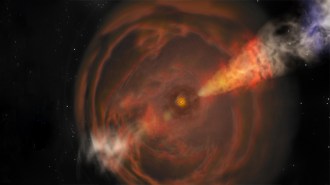 Space
SpaceA weird cosmic flare called the ‘Cow’ now has company
Scientists have now found three similar luminous, short-lived bursts of light, part of a class known as fast blue optical transients.
-
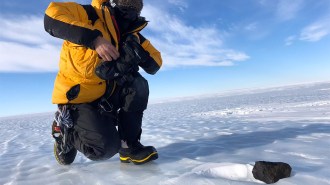 Planetary Science
Planetary ScienceMeteorites might be more likely to strike near the equator
Meteorites from Antarctica have helped scientists assess the total number likely to hit Earth every year — and where they are most likely to fall.
By Shannon Hall